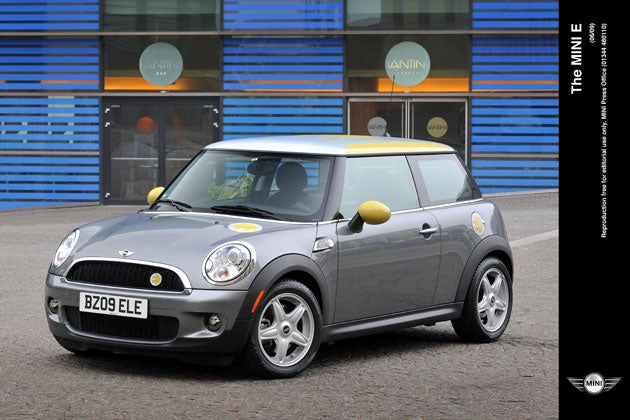BMW draws lessons from electric Mini trials

BMW's Mini E UK field trials programme which began in December 2009, ends today. Two groups of forty drivers took part in the trials, which involved “real world” use of adapted battery-powered versions of the Mini.
The Mini E is a research vehicle, based on an existing car originally designed to take a combustion engine, rather than being designed from the ground up as an electric vehicle (EV), but BMW believes it has been able to gather useful information on the likely future use of battery-powered cars. A full assessment will be completed later on, but the company's analysis of early feedback shows that those who took part were fairly typical of drivers in general in terms of their daily mileage and other aspects of their car use.
Perhaps the most interesting findings concern the subject of range. So-called “range anxiety” is widely perceived to be one of the biggest obstacles to the widespread adoption of EVs; a recent survey of European consumers by the consulting firm Deloitte highlighted the limited distance EVs could cover between top-ups from the grid as an important issue, and participants in the trial also expected difficulties with range and the lack of recharging facilities away from their home base before they had experience of driving the Mini E. But once the test drivers had experience of the car in daily use, few of them actually had any problems in practice. Although they wanted more public charging points, most said they'd been able to cope even in the absence of a comprehensive recharging infrastructure.
This points to one of the biggest challenges faced by car manufacturers hoping to sell lots of EVs; how to reshape sometimes mistaken preconceptions about battery-powered cars held by potential buyers. This is true not just of range but also of performance. Most people who actually get the chance to drive one of the latest electric cars are favourably impressed by their acceleration and refined behaviour, and this was borne out by feedback from BMW's UK test group, although there were reports that the cars' performance was affected by the very cold weather of December 2009 and January 2010.
One of the snags with the Mini E identified by trial participants, a need for more passenger and luggage space, should be easier to fix. While the Mini E has a big battery pack where the rear seat would be on a normal Mini, future plug-in BMWs such as the recently announced i3 will be designed from the ground up as EVs. That will make it much easier to arrange the packaging of the car in order to accommodate the batteries and electric drivetrain, and also to incorporate exotic weight-saving materials such as carbon fibre into the structure.
BMW also reports that “the BMW Group is trusted to provide a technically mature solution to the challenges presented by EVs.”. Perhaps an established badge will go a long way to reassuring sceptical buyers that electric cars really can work.
Subscribe to Independent Premium to bookmark this article
Want to bookmark your favourite articles and stories to read or reference later? Start your Independent Premium subscription today.

Join our commenting forum
Join thought-provoking conversations, follow other Independent readers and see their replies